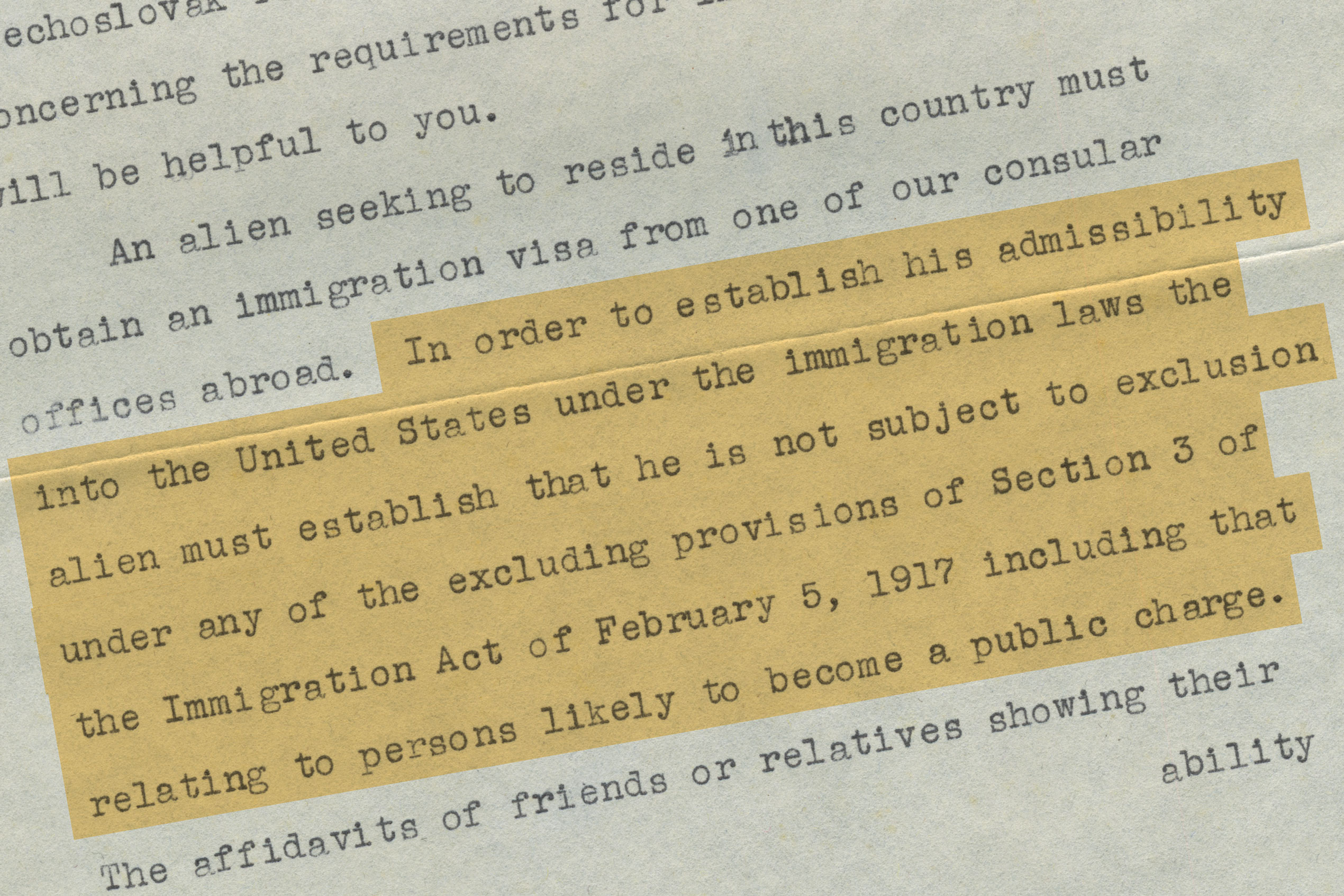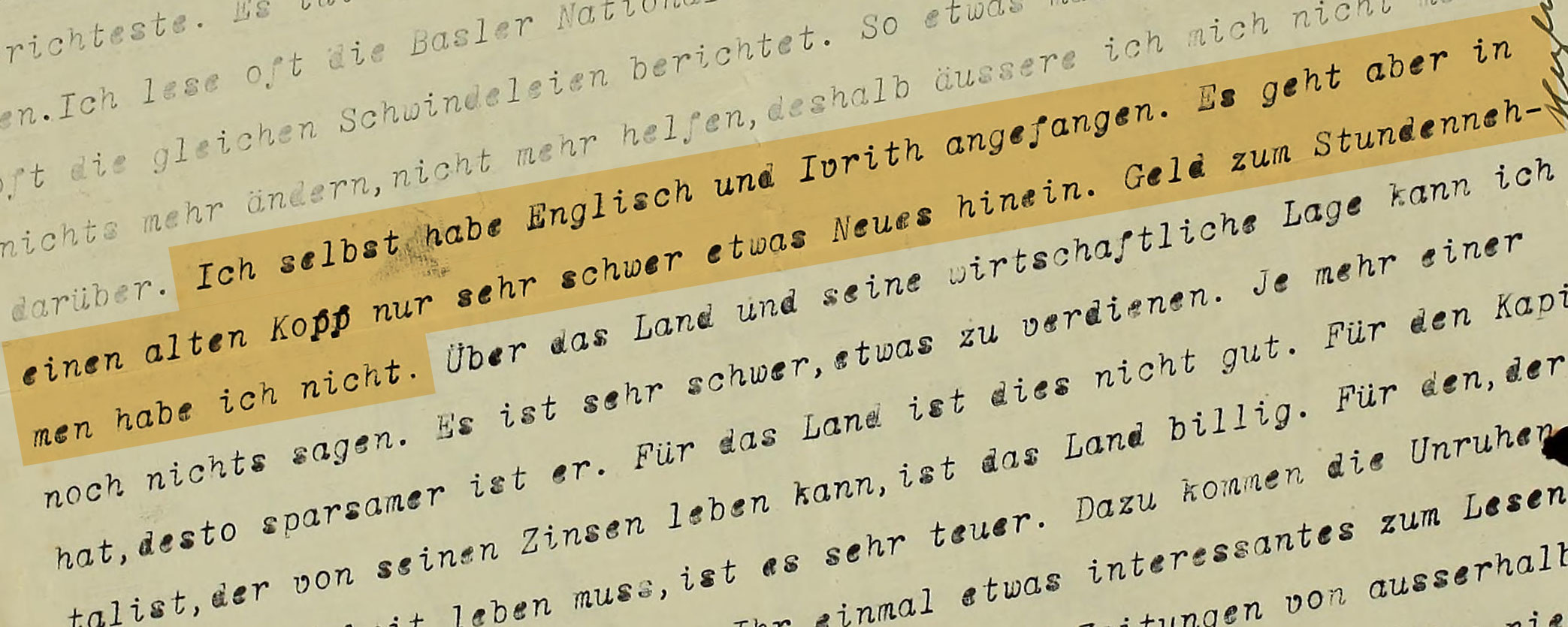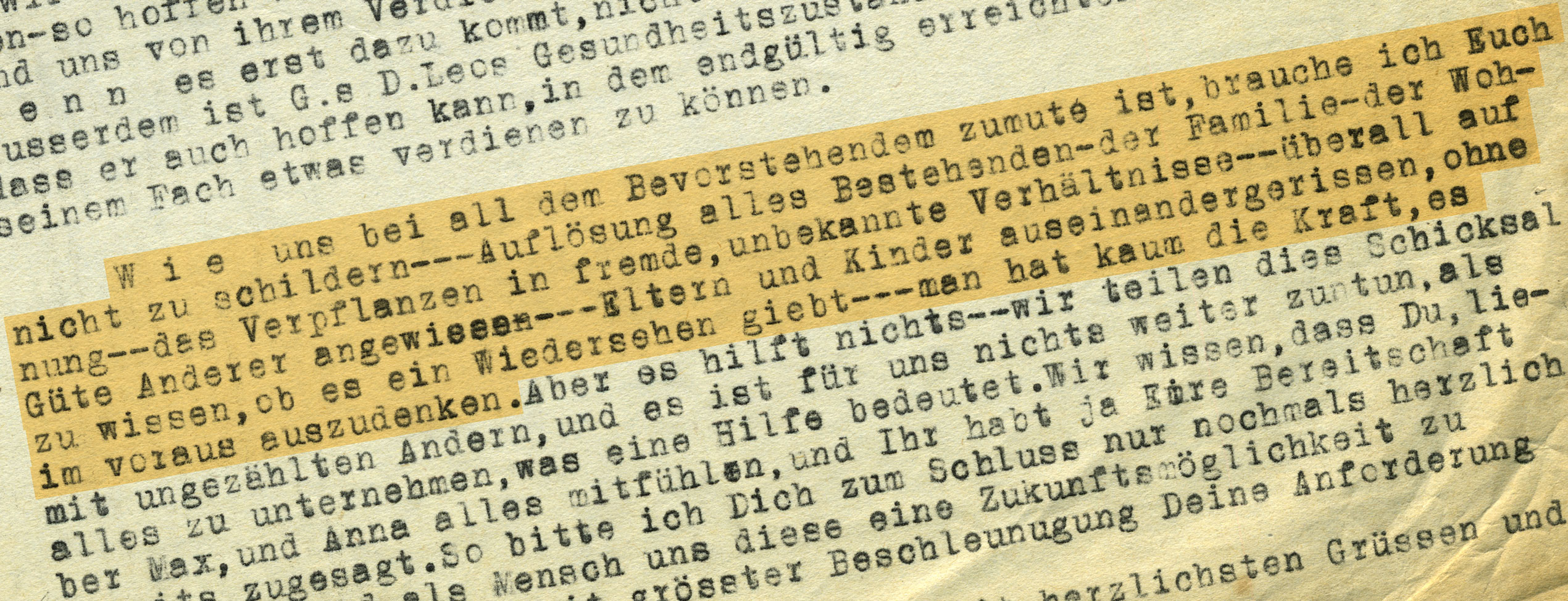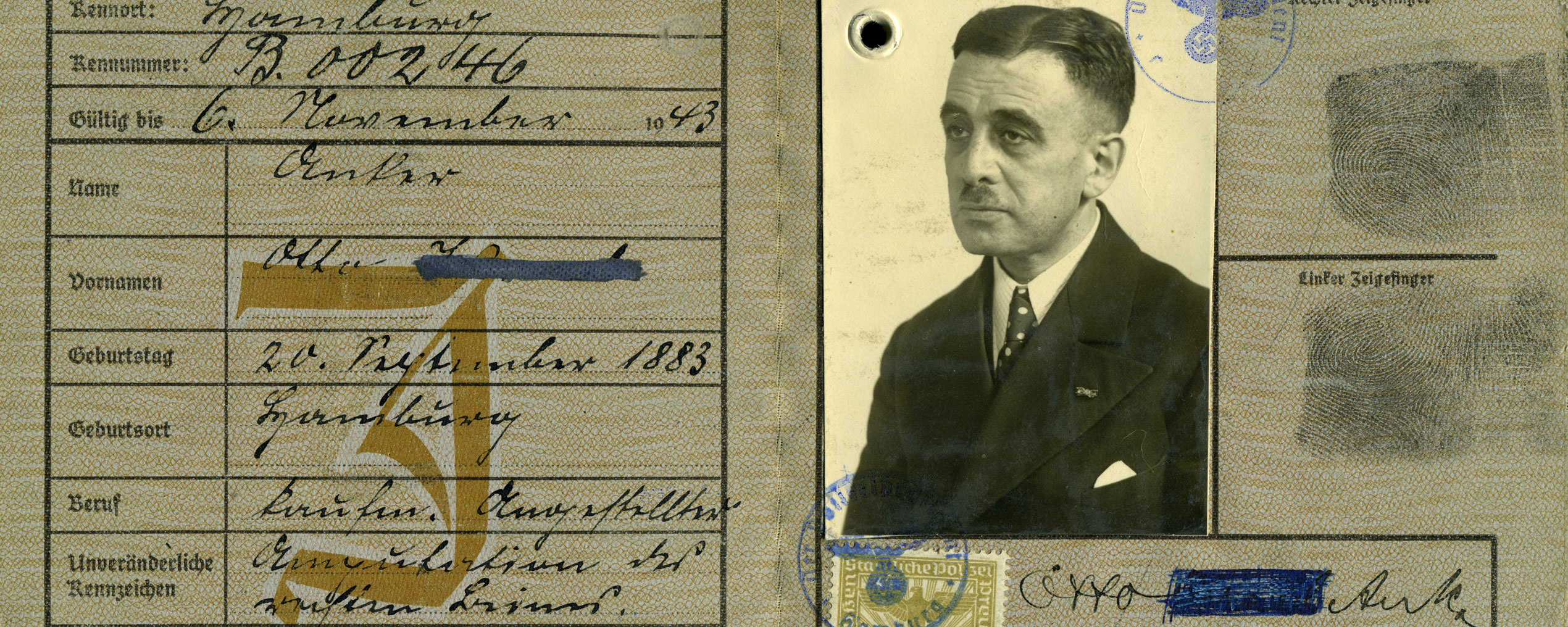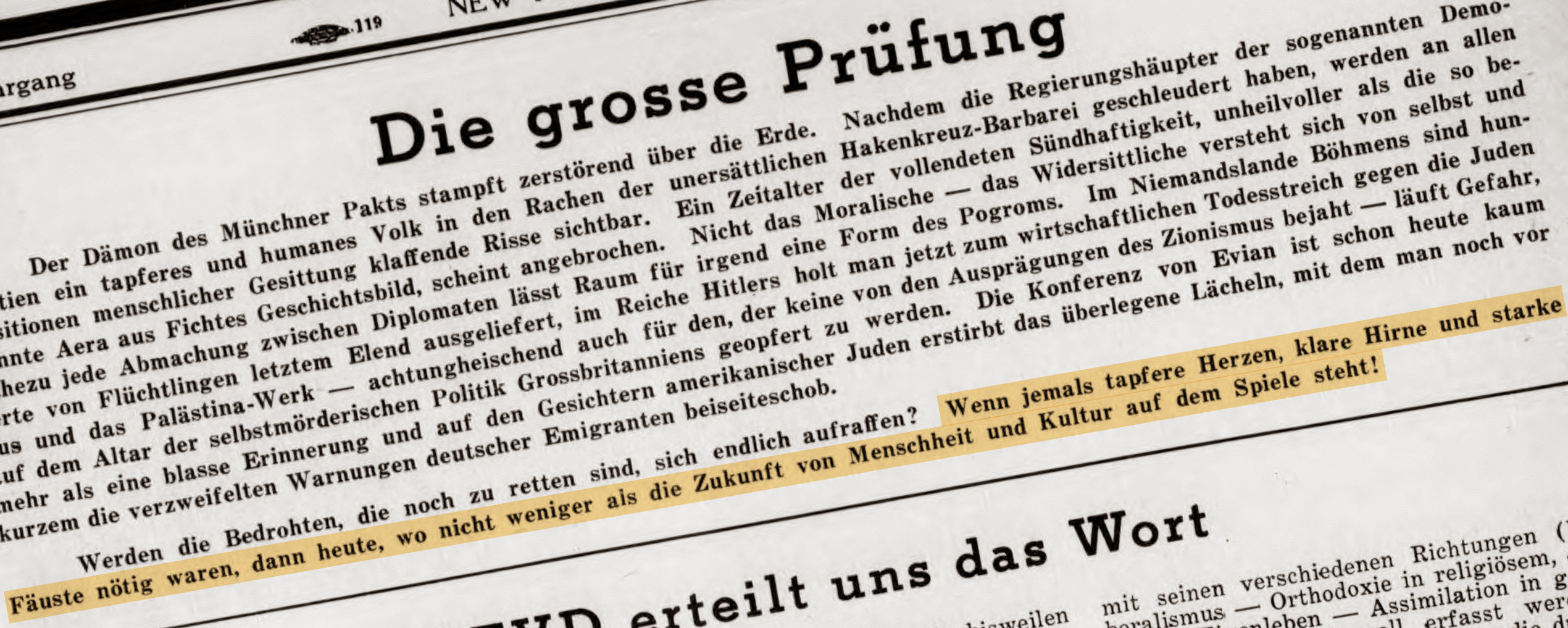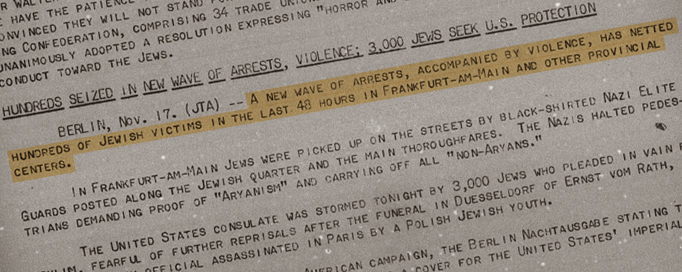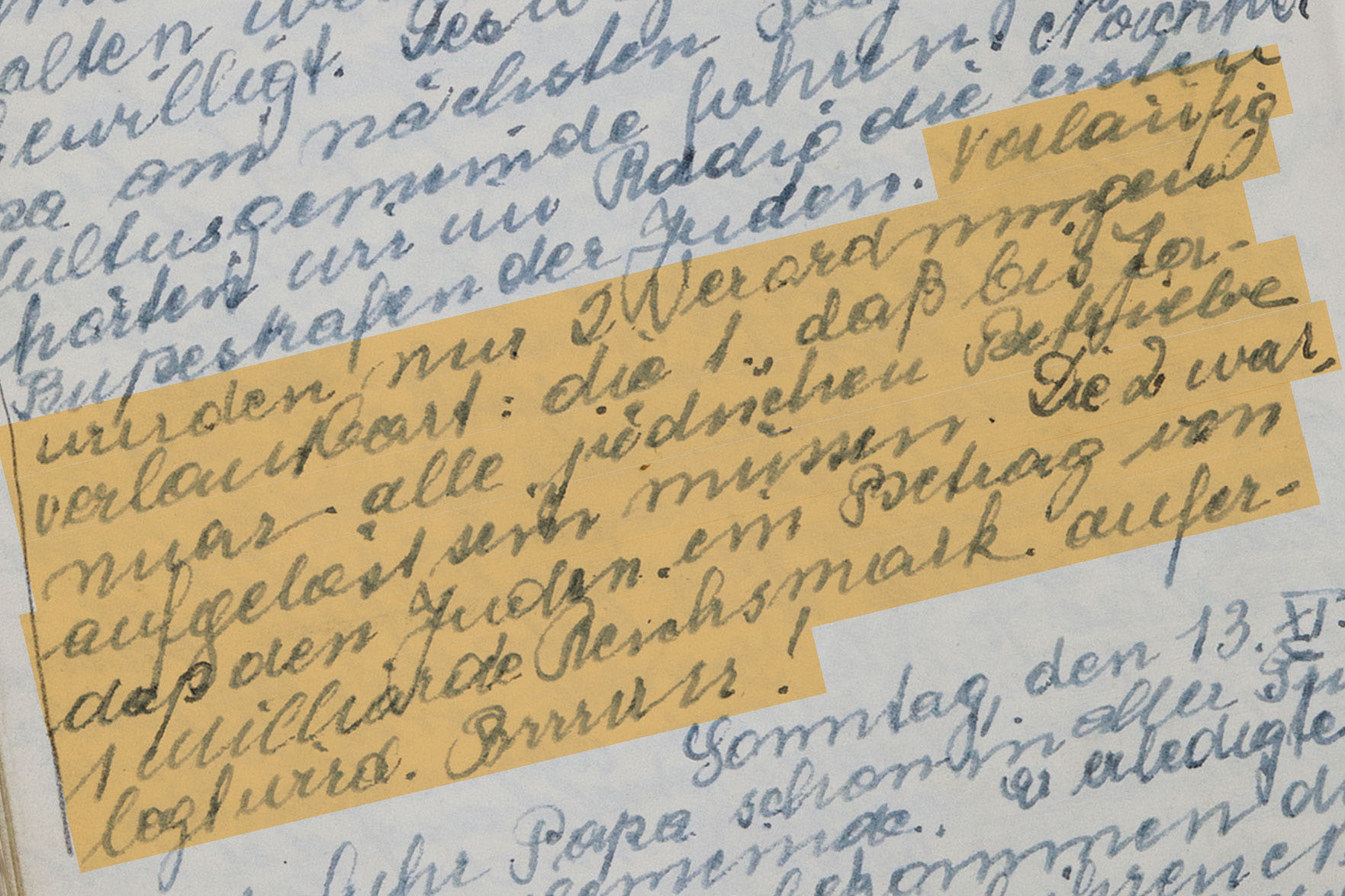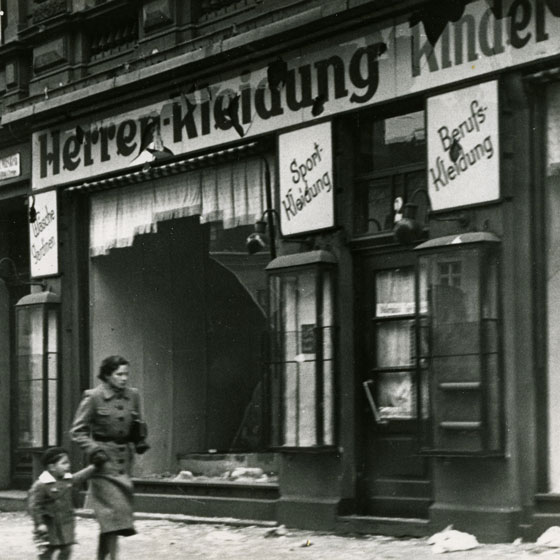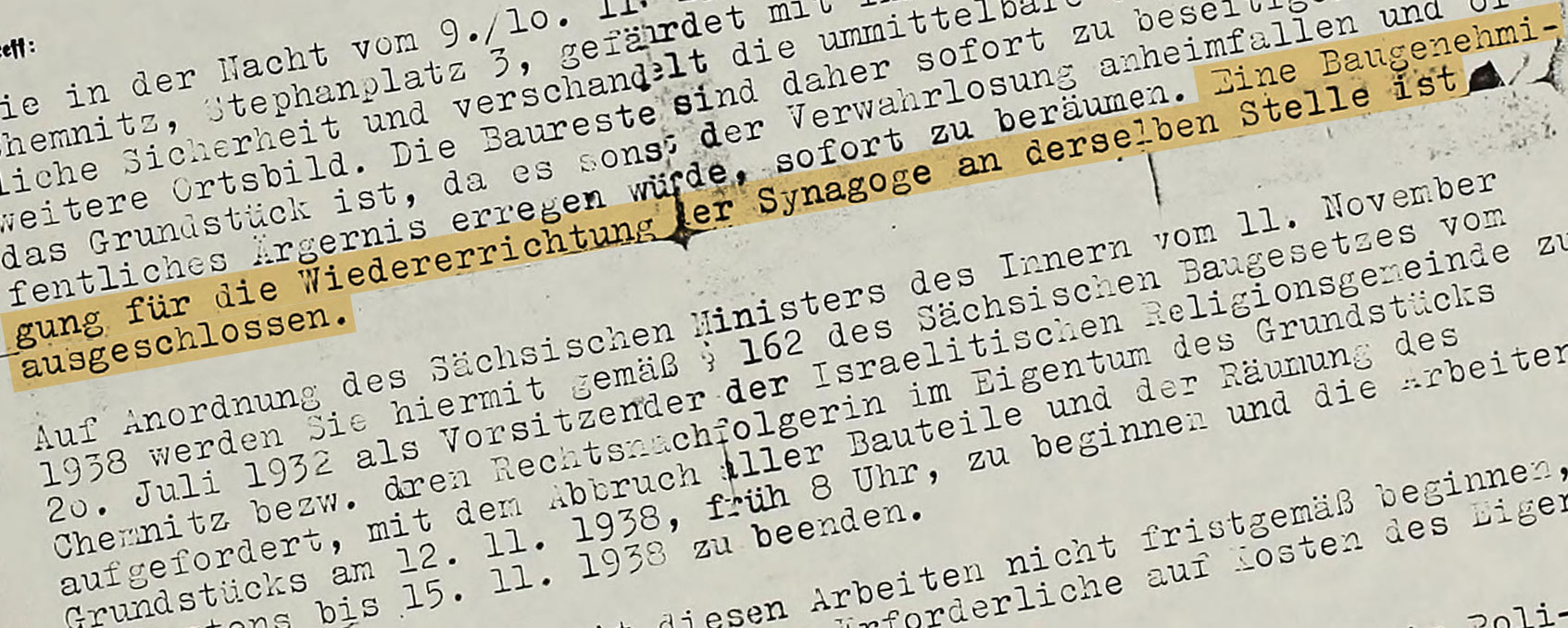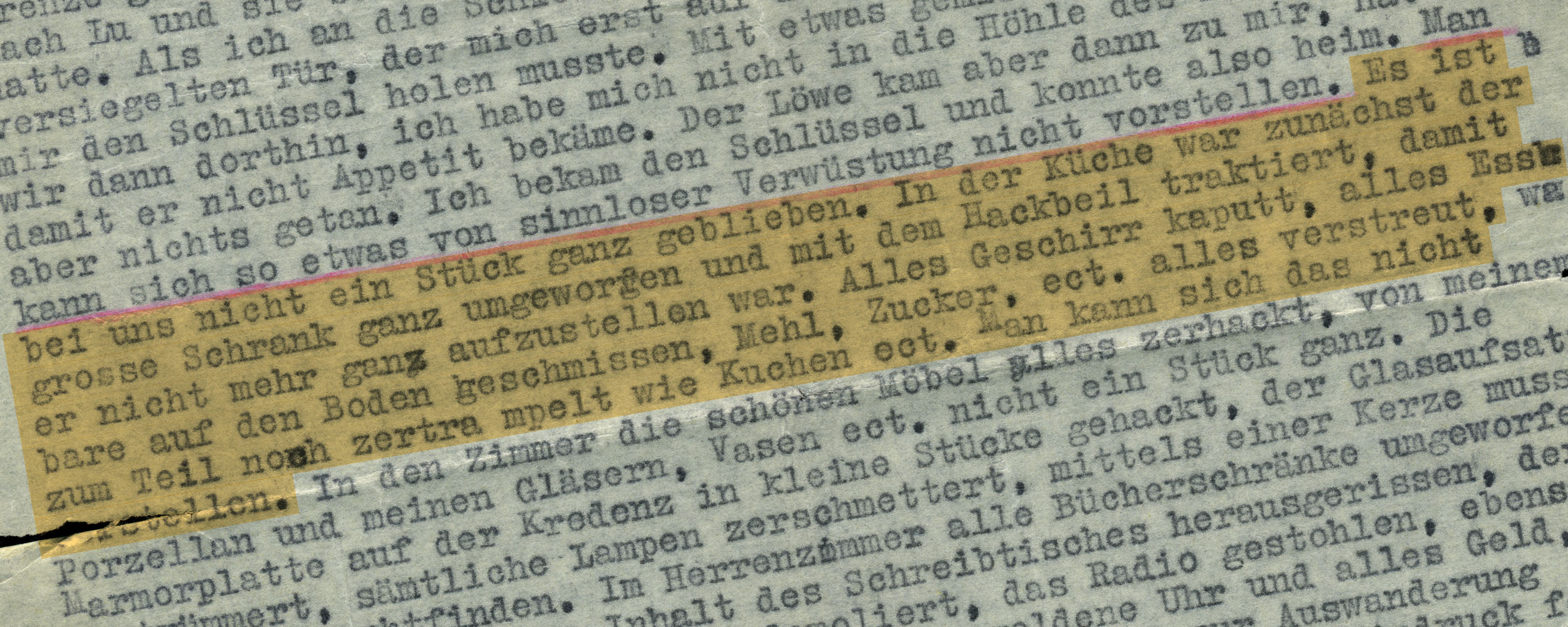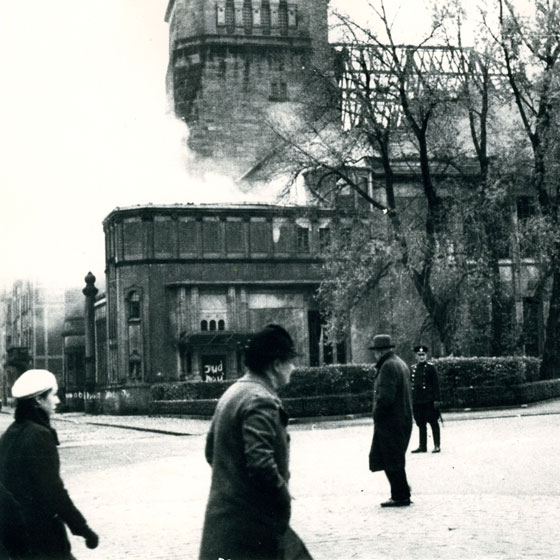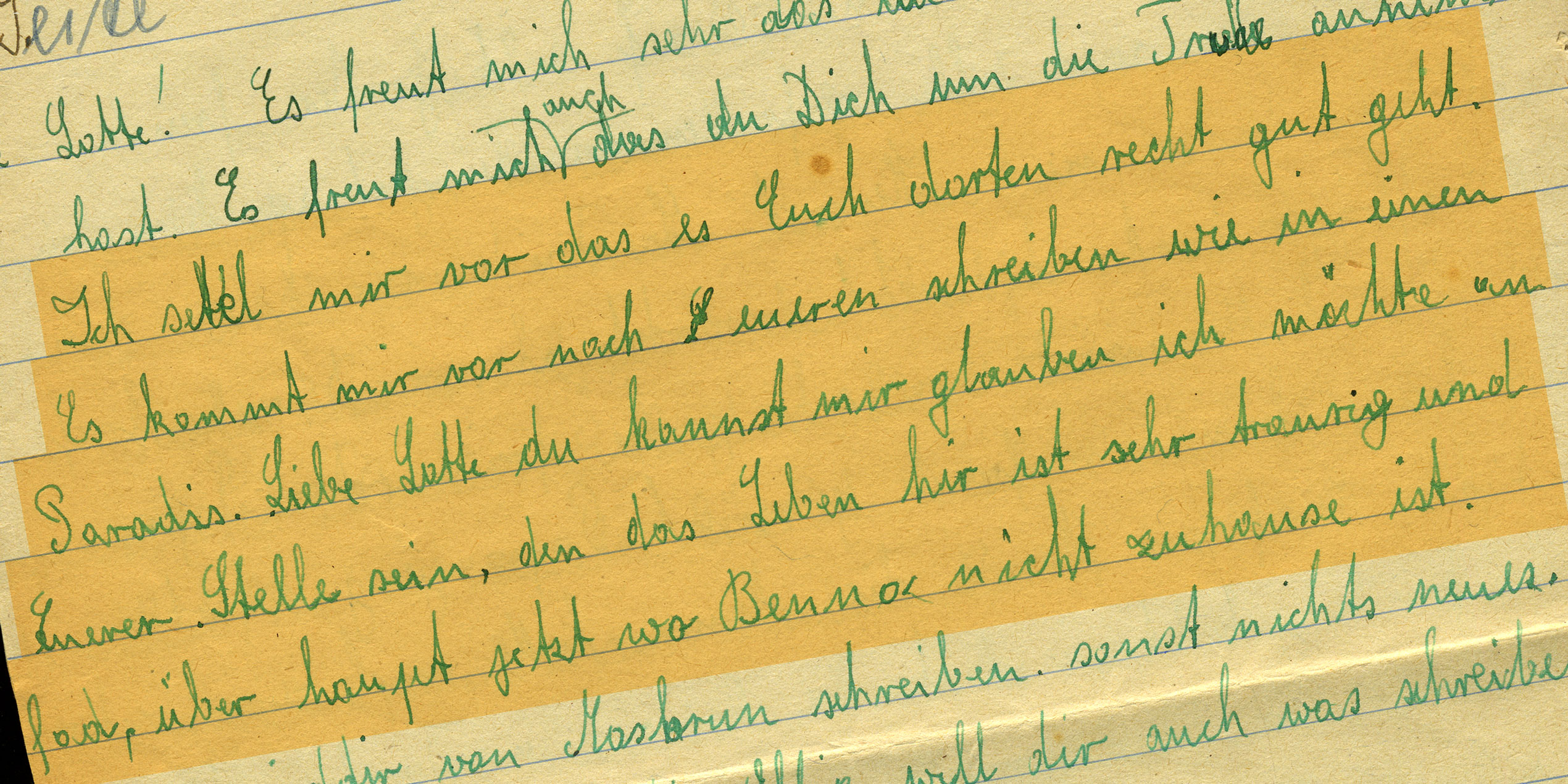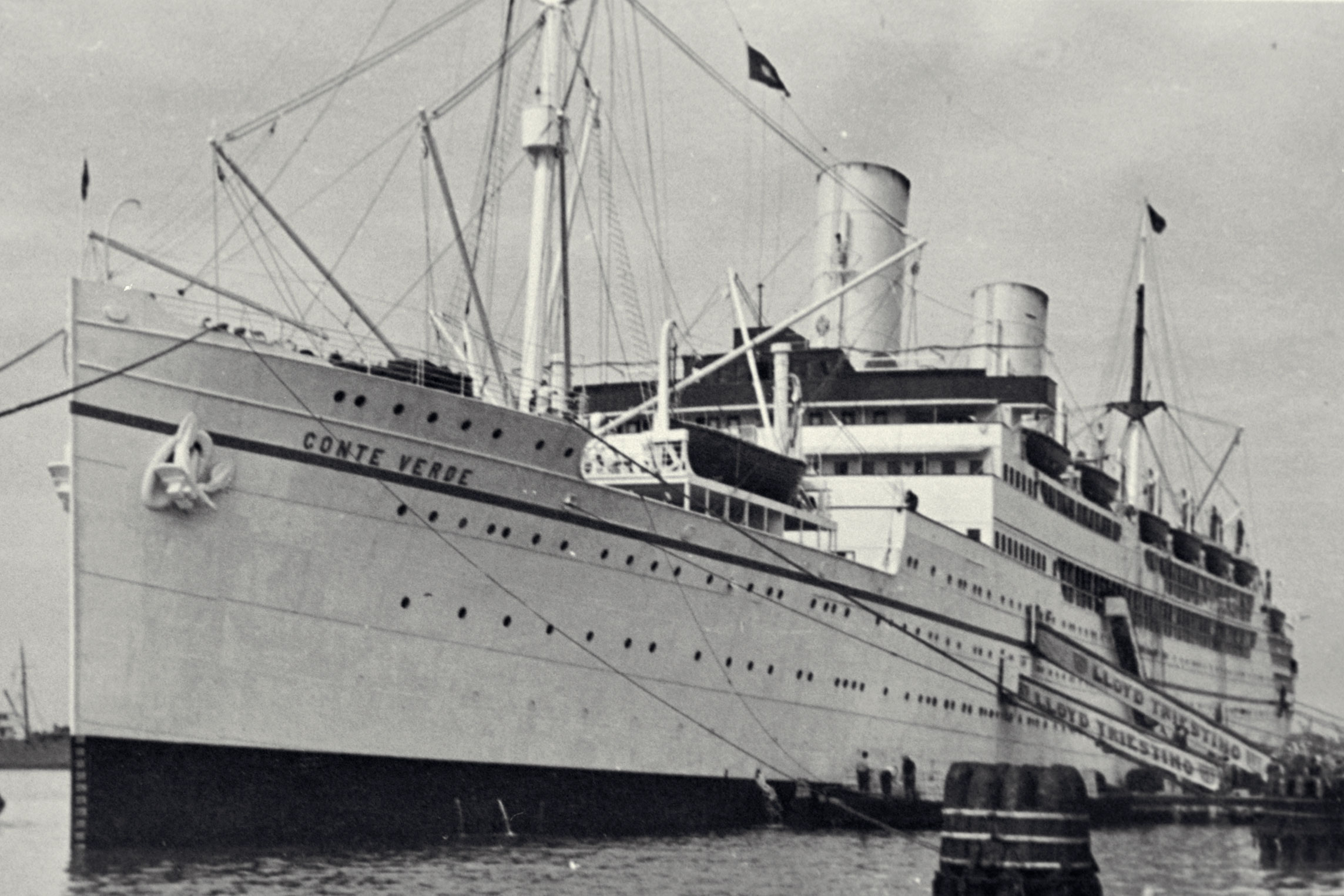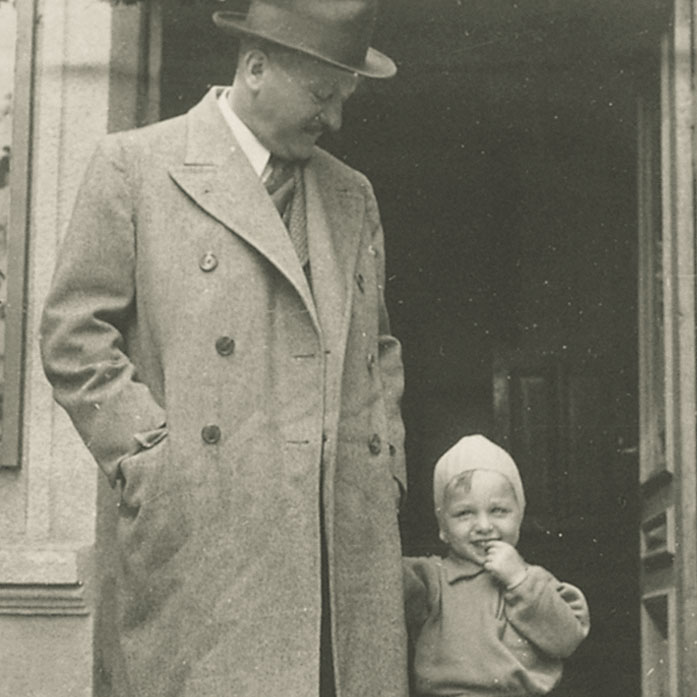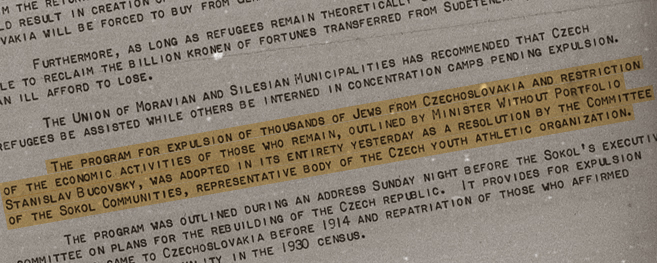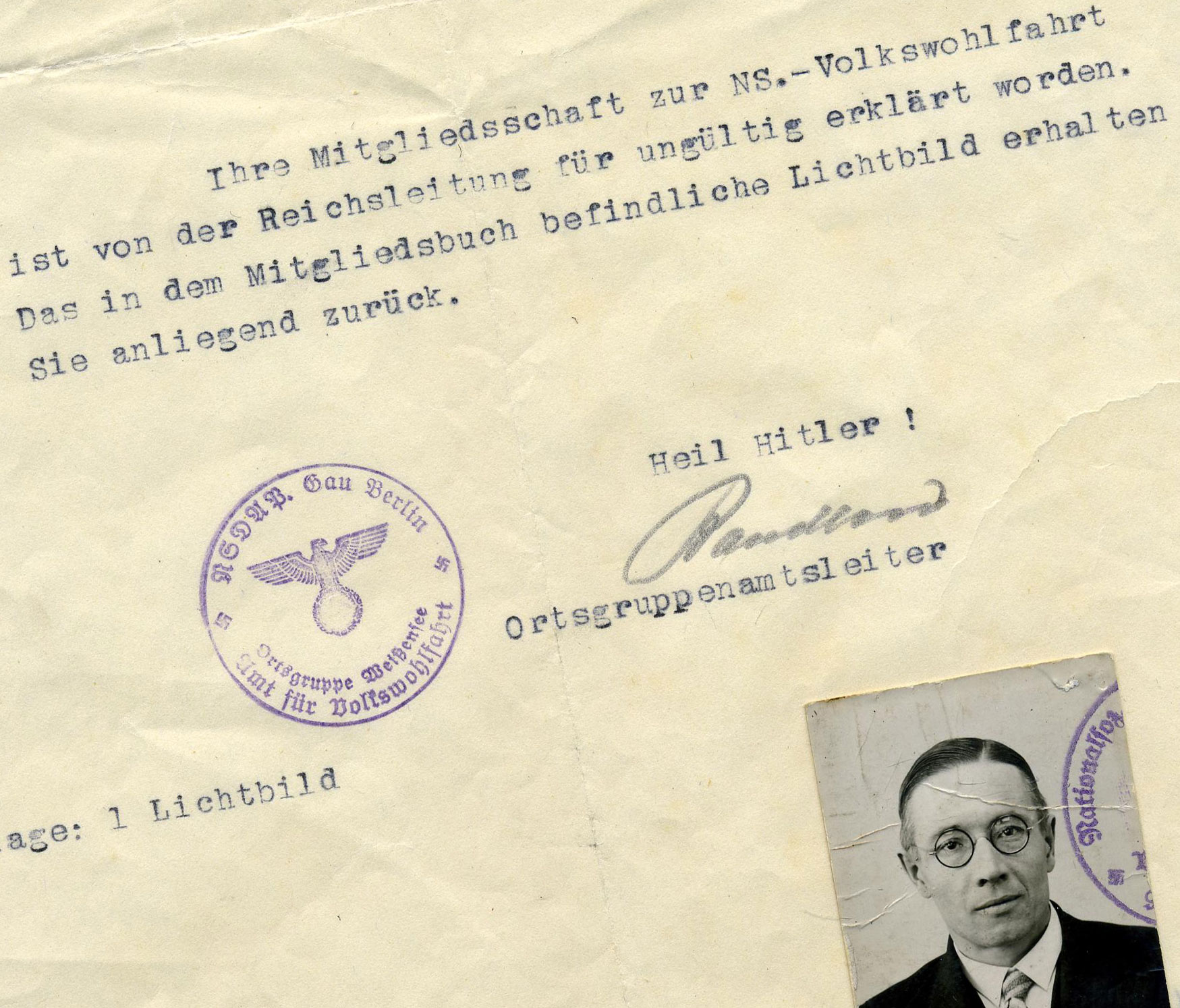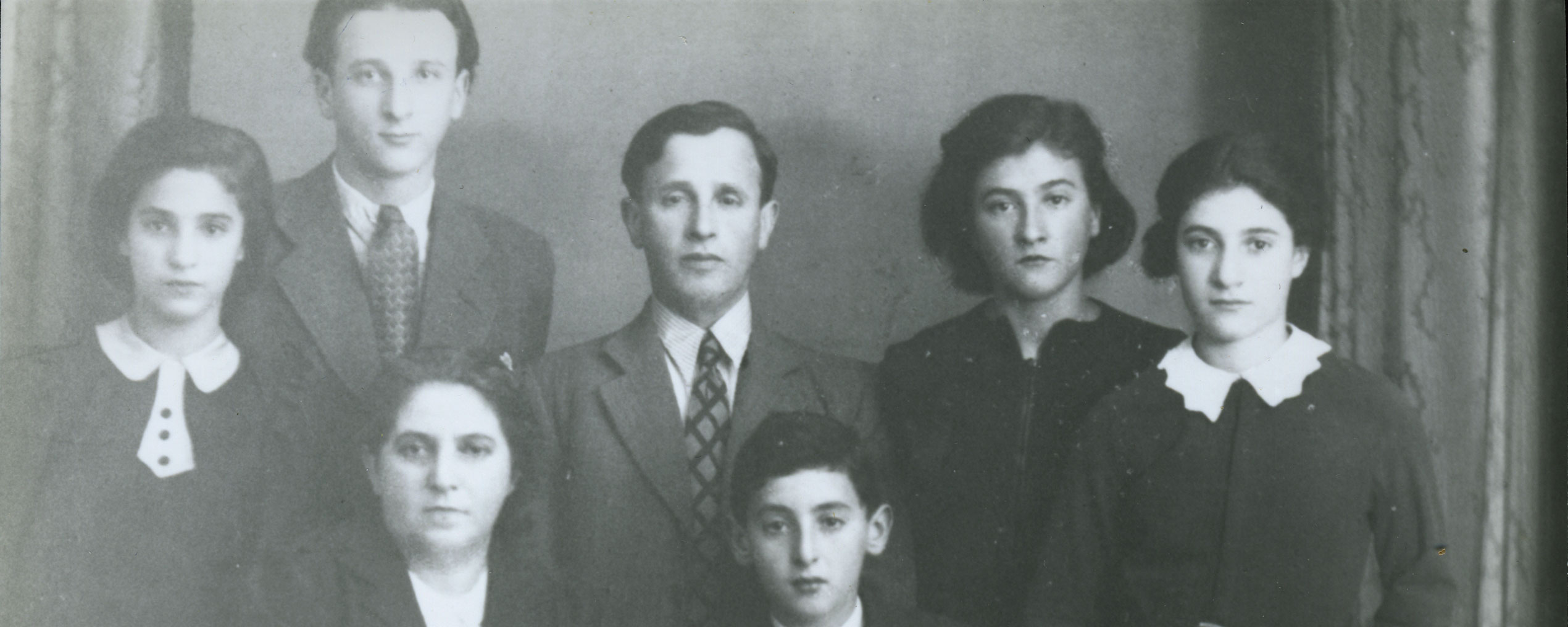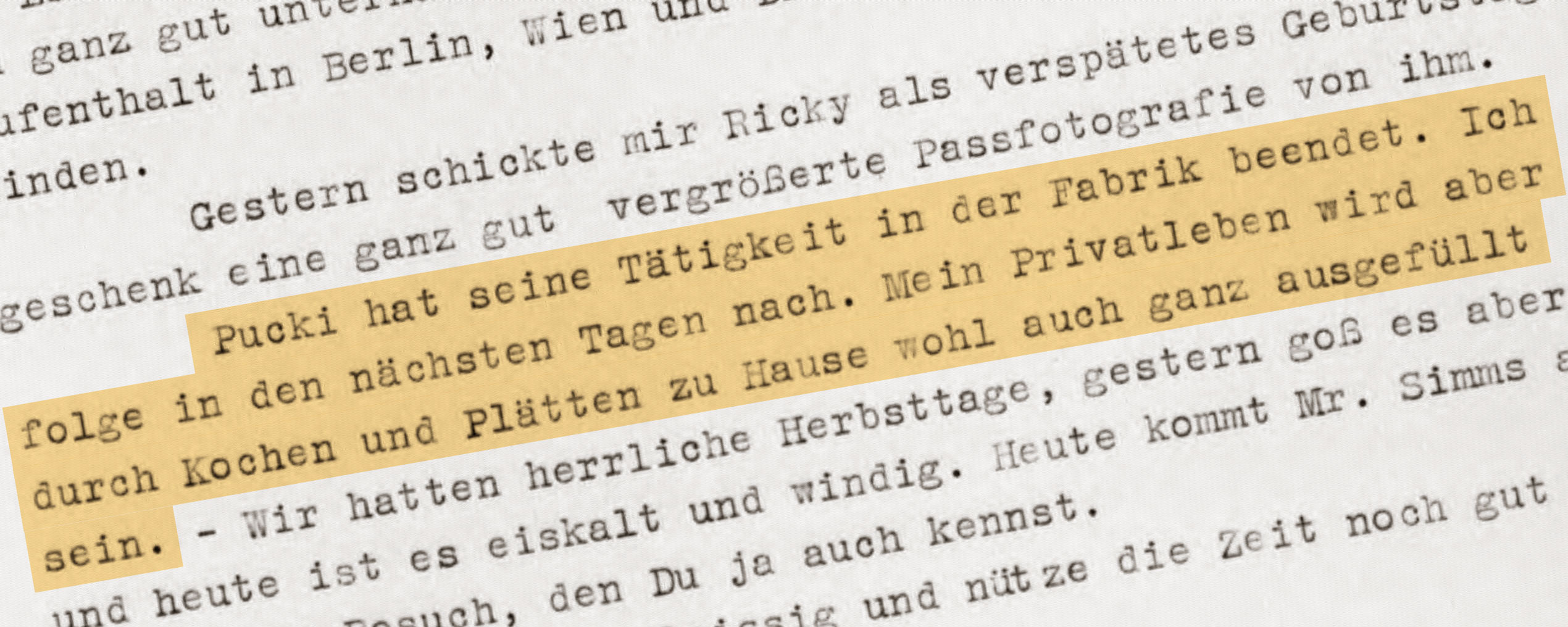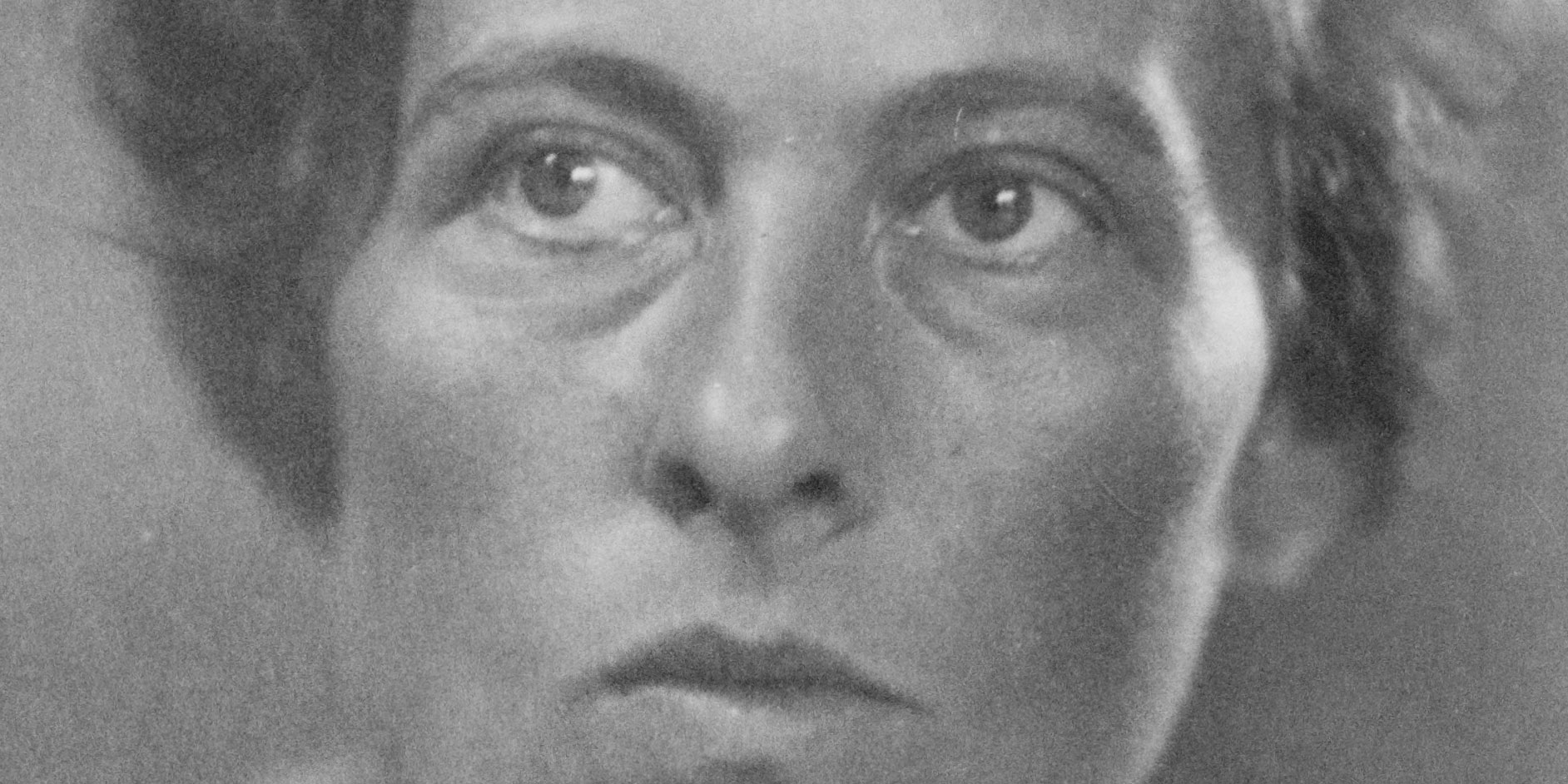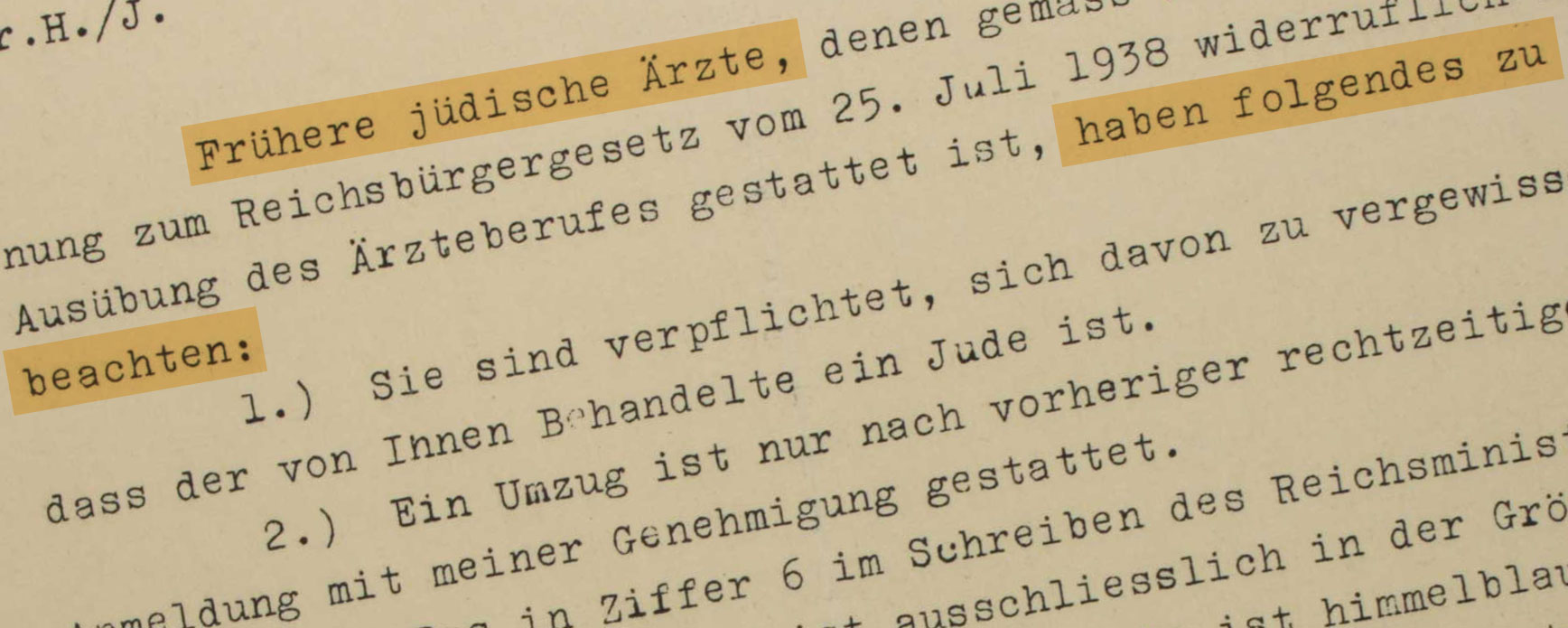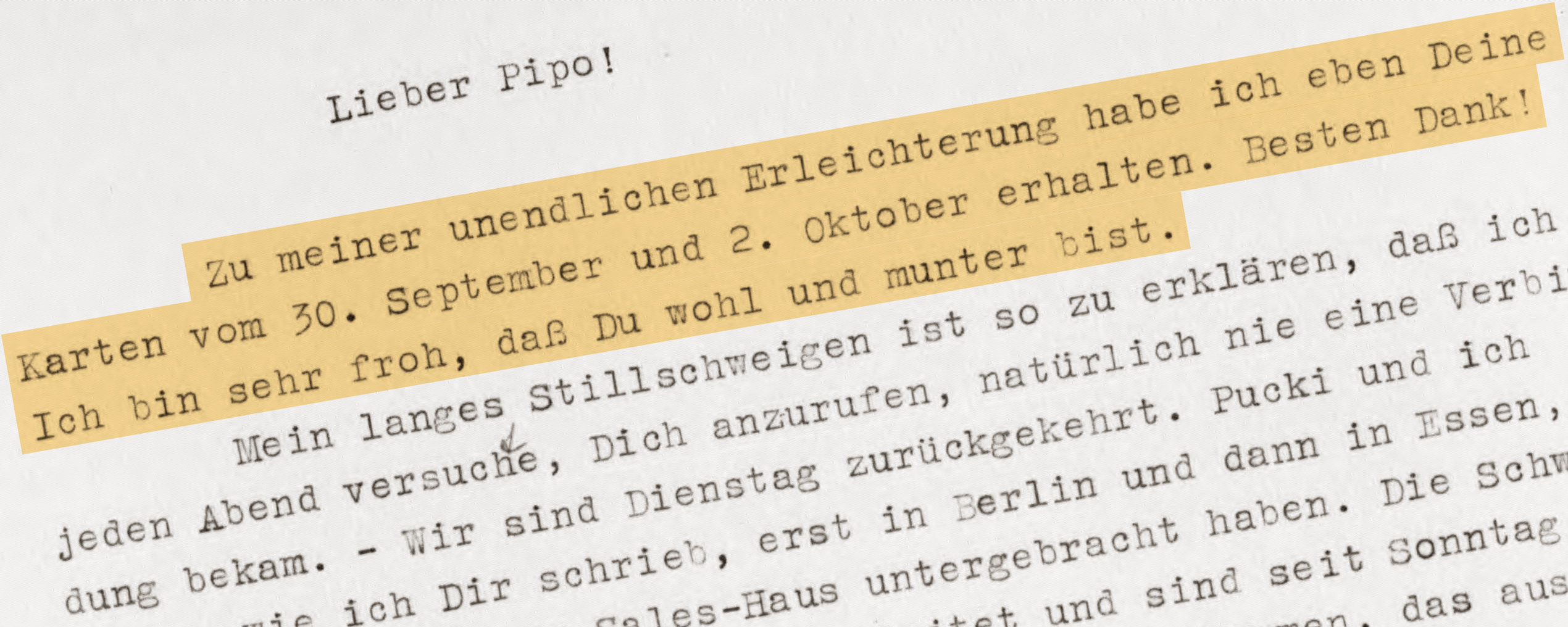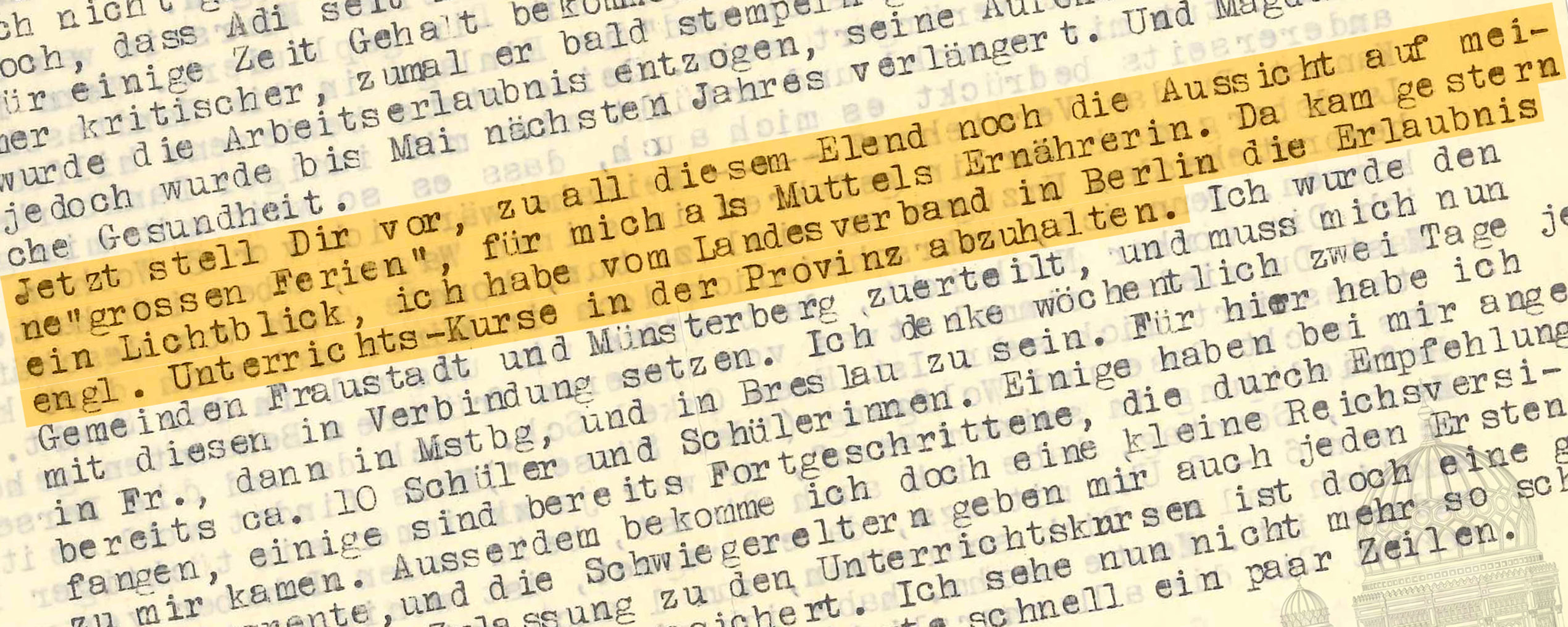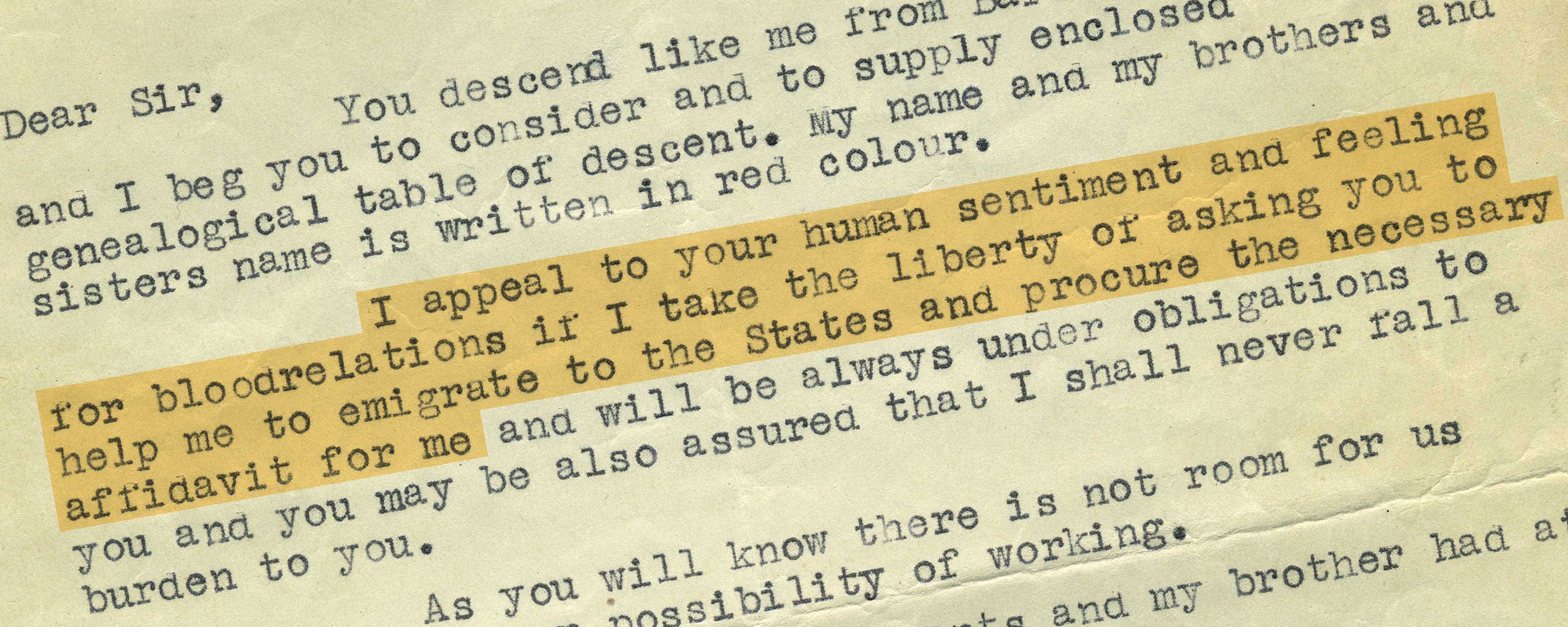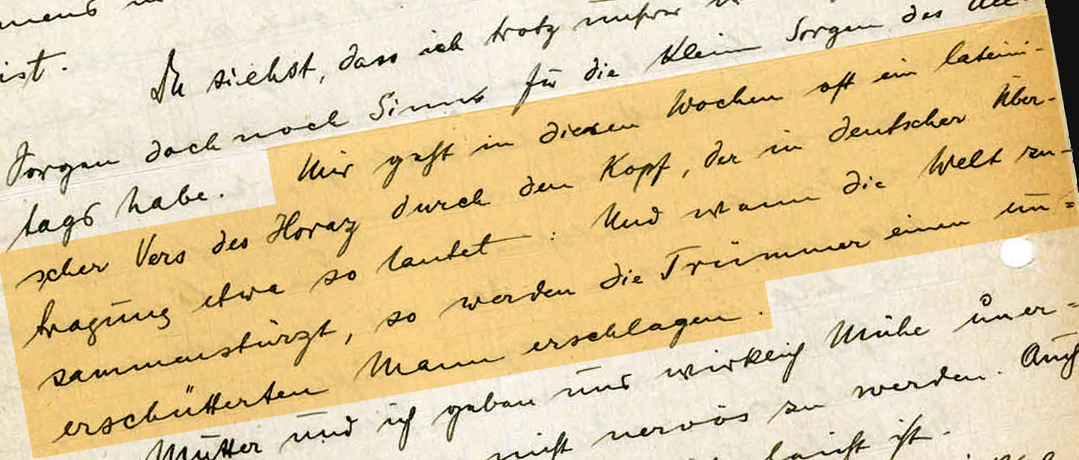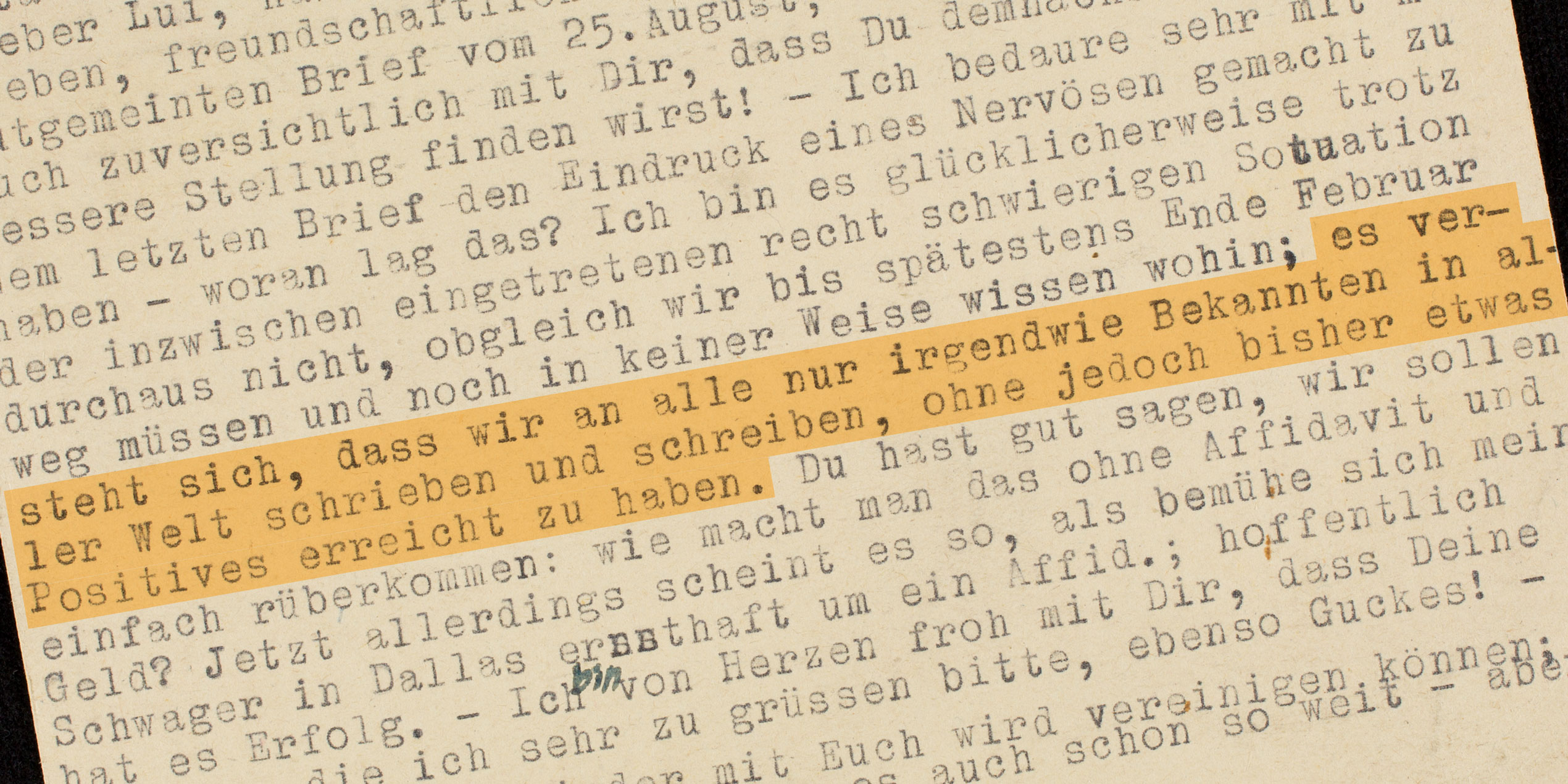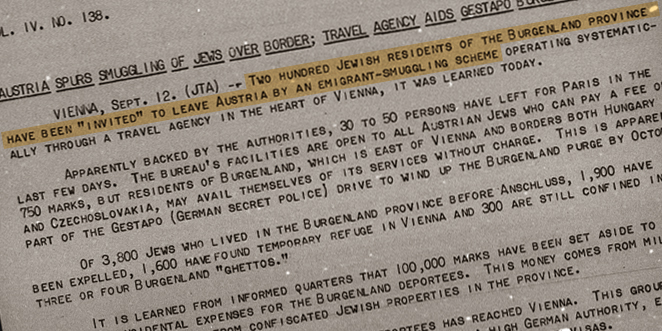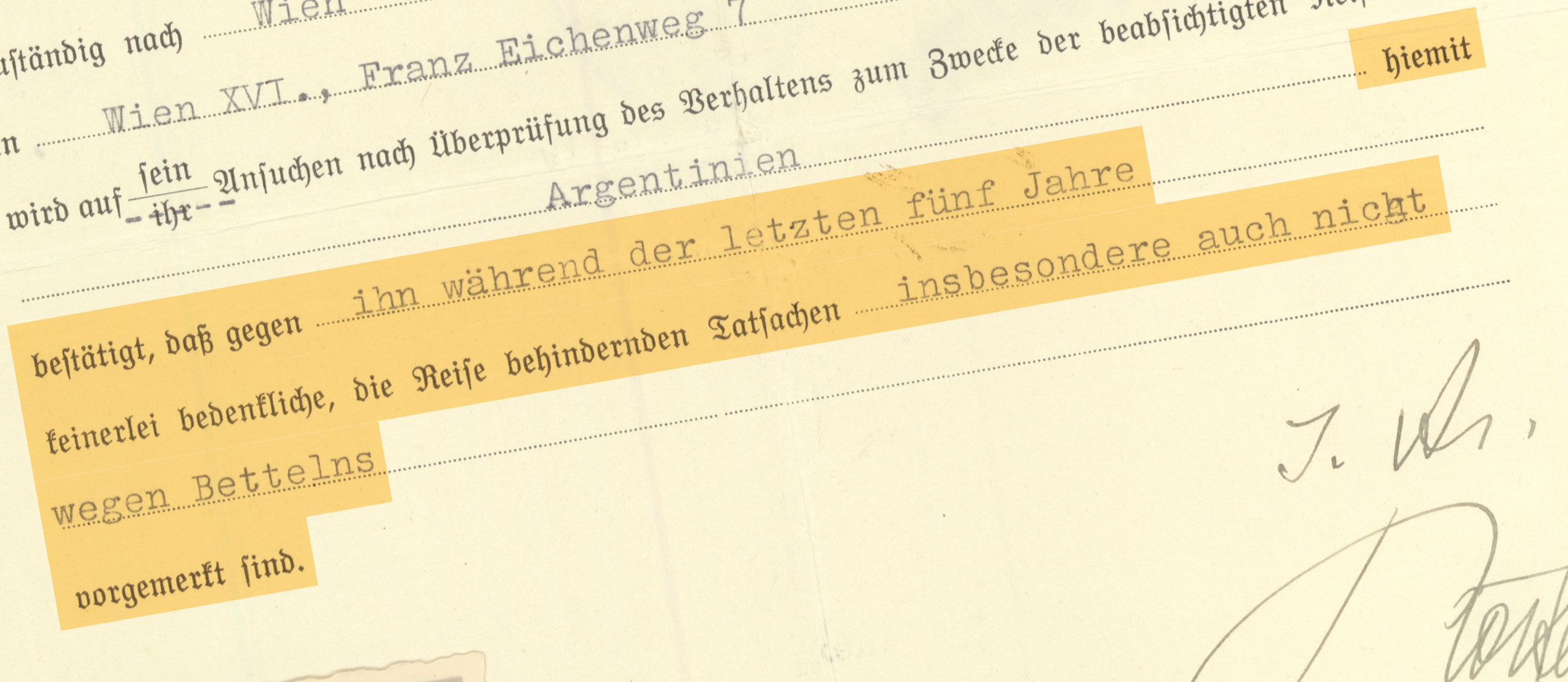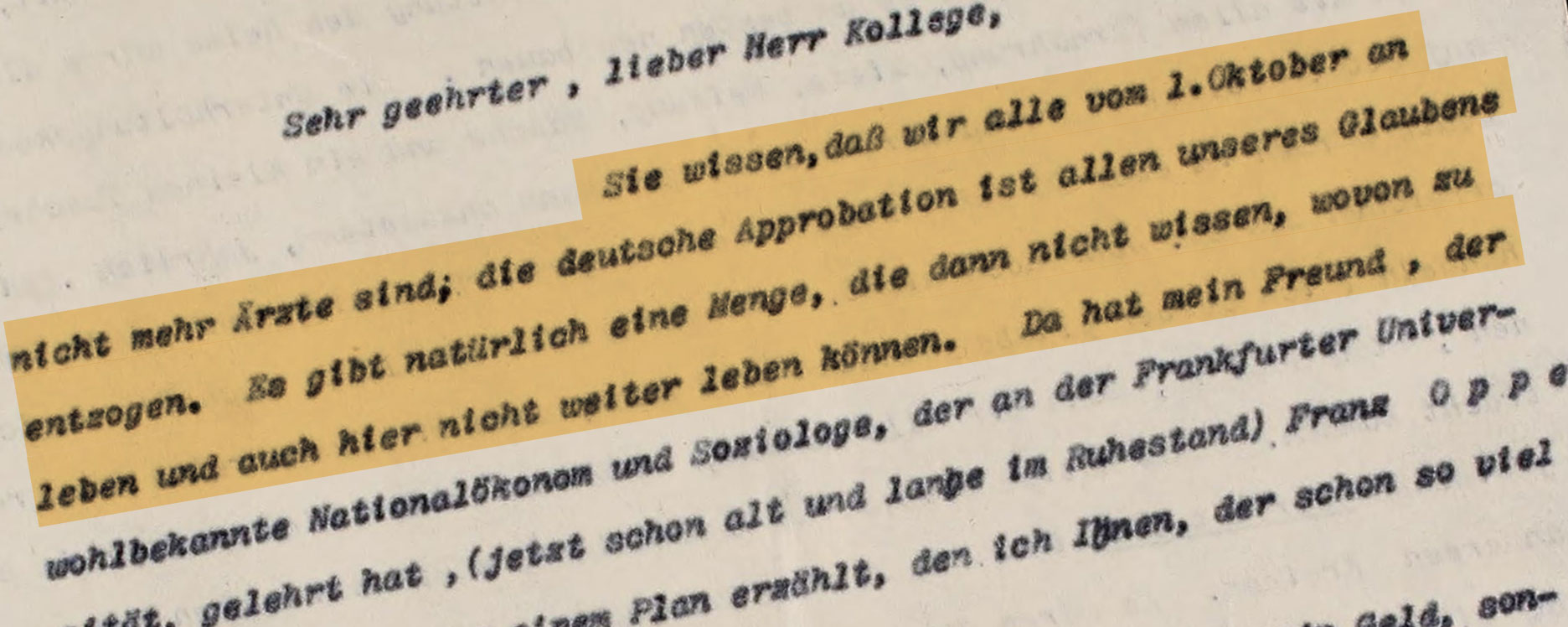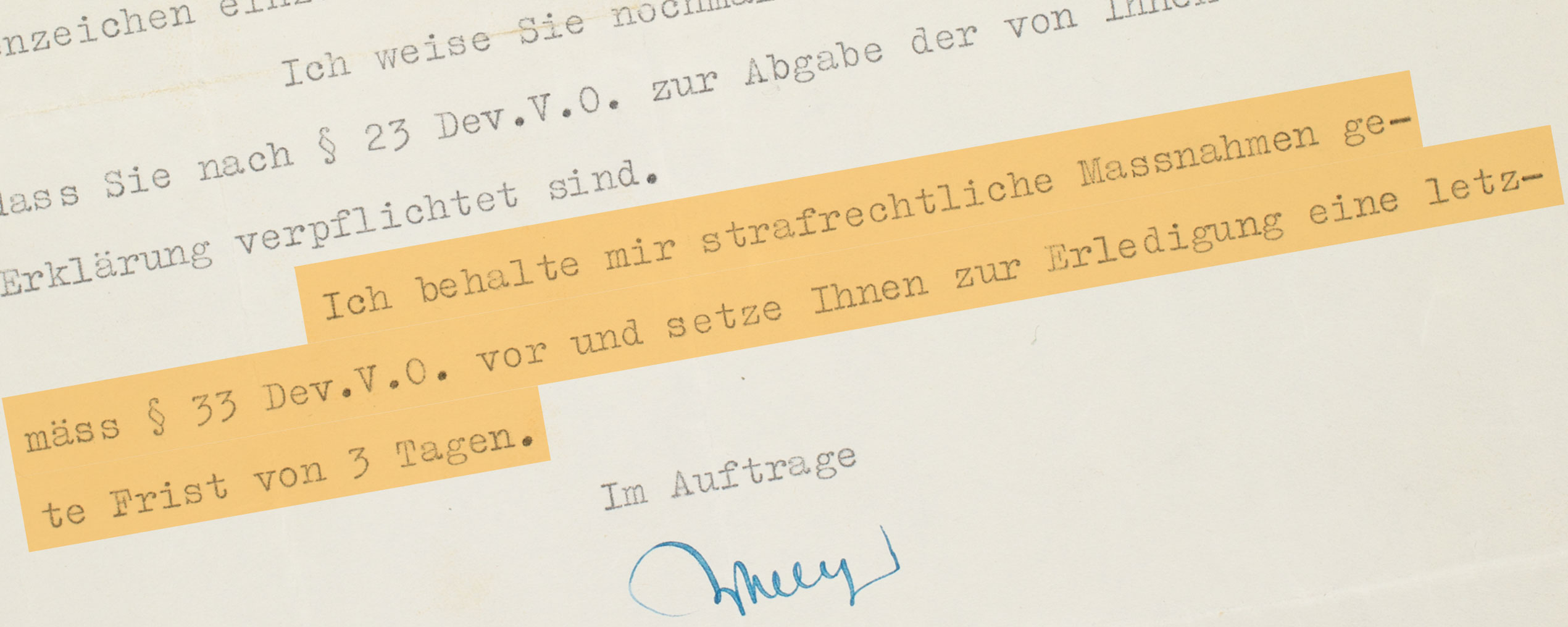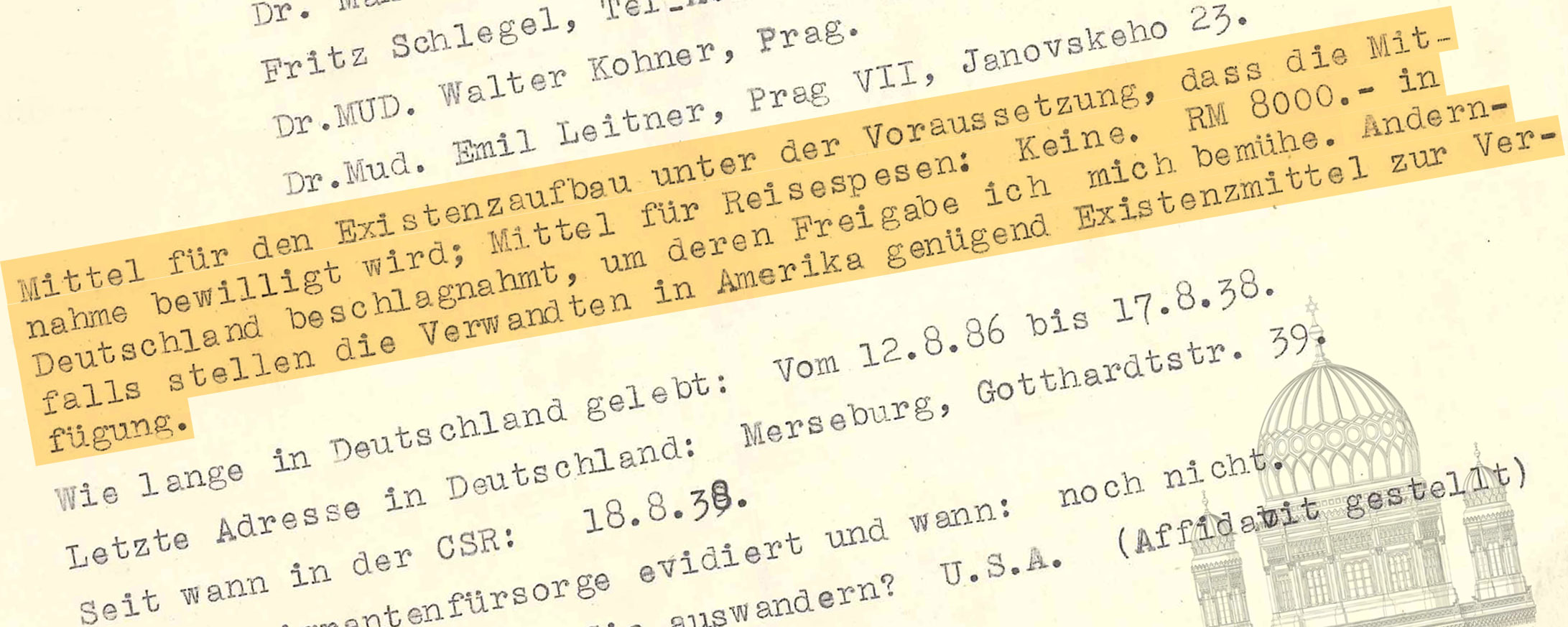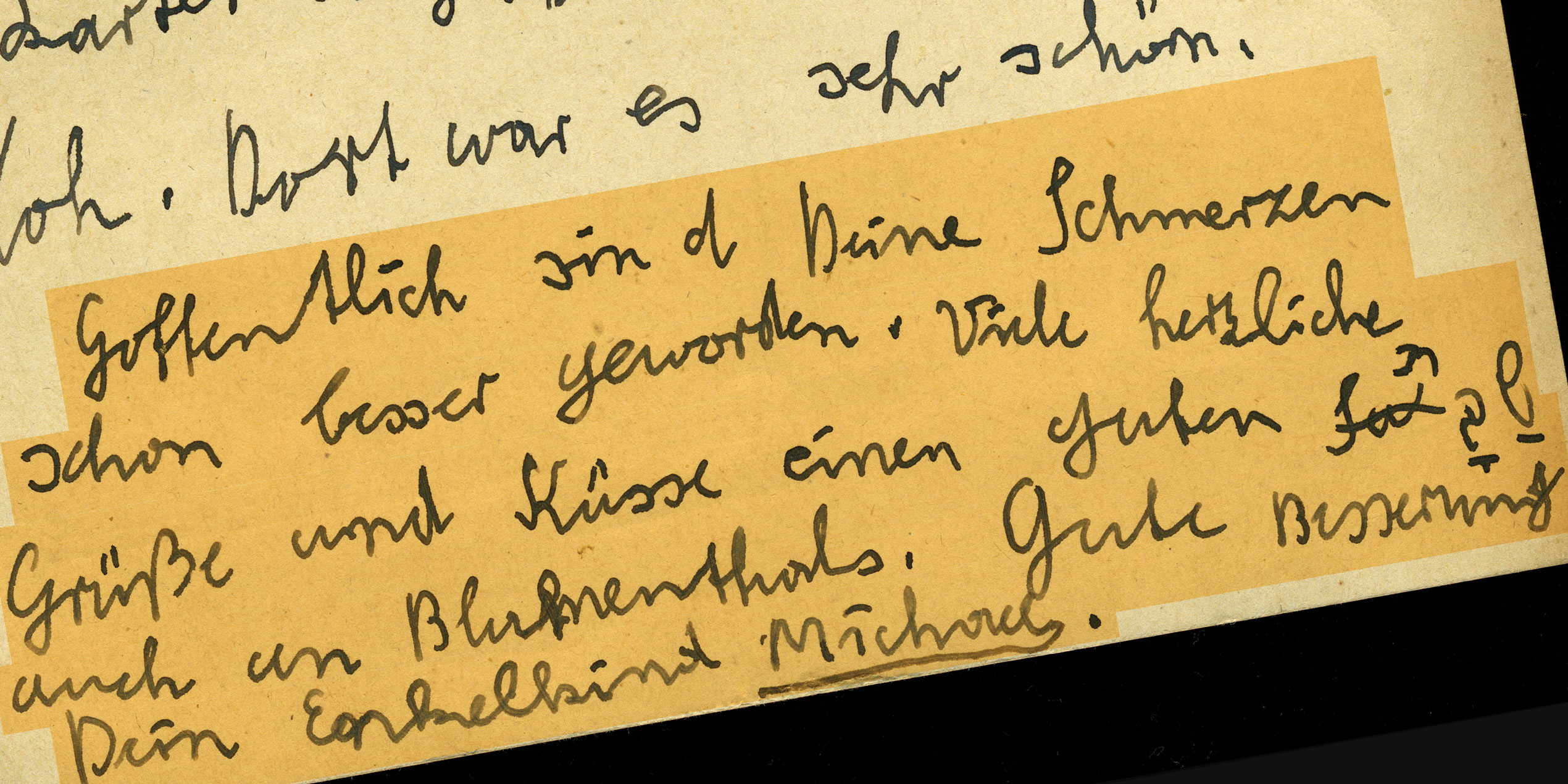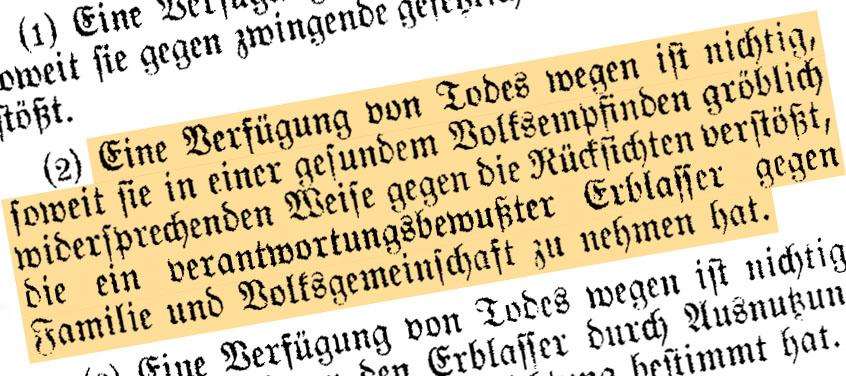Blackmailed into emigration
To freedom via Cuba
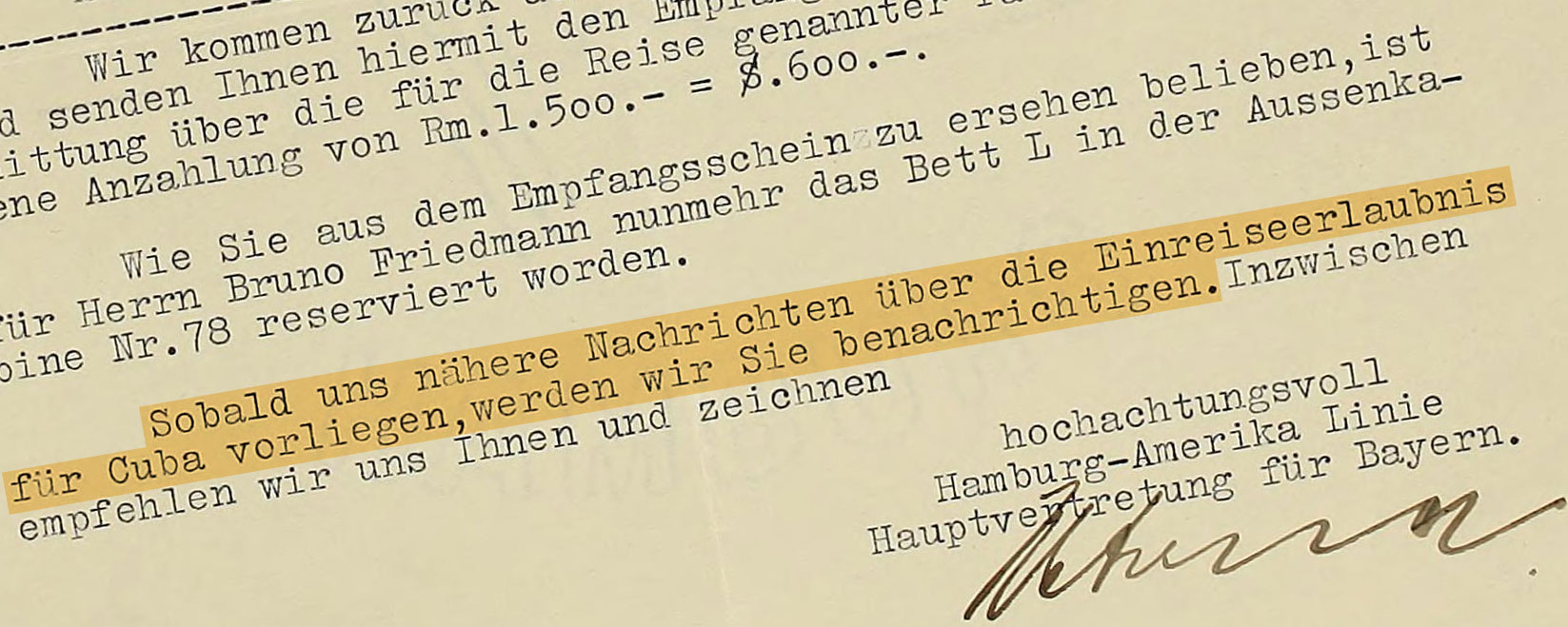
“As soon as we have the details about the entry permit for Cuba, we will notify you.”
Schwandorf, Bavaria
The large-scale arrests of Jewish men during the November Pogroms – around 30,000 were incarcerated at the Sachsenhausen, Buchenwald and Dachau concentration camps – fulfilled its purpose: it served to blackmail Jews into giving up on their remaining assets and emigrating. Among the 10,911 Jews held in Dachau alone were Georg Friedmann, owner of a fashion shop in Schwandorf (Bavaria) and his son, Bruno. Lillian Friedman, his wife, lost no time. Already in November, with her husband and son still incarcerated, she went to the travel agency of the Hamburg-America-Line in Munich for a consultation, which was followed by an intensive correspondence. Thanks to a wealthy relative in New York (who had heard about them for the first time in this context), they had received an affidavit. The plan was to travel to New York via Cuba. On December 29th, the Hamburg-America-Line issued a receipt to Mrs. Friedmann for the passage from Hamburg to Havanna of her son, Bruno, and her mother-in-law, Amanda Friedmann.
SOURCE
Institution:
Leo Baeck Institute – New York | Berlin 
Collection:
George and Lillian Friedman Collection, AR 7223 
Original:
Box 1, folder 4








































